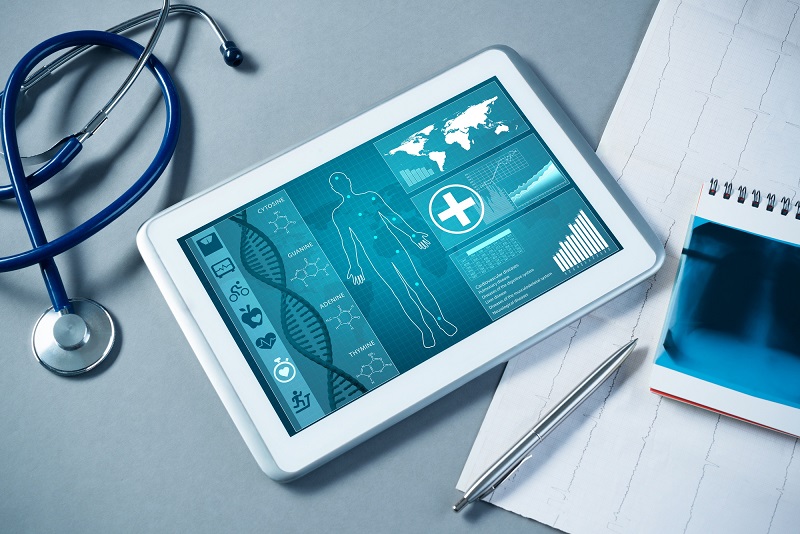In a world that seems to be in a constant state of flux, one thing remains certain: technology has brought about a revolution that has left no aspect of our lives untouched. From the moment we wake up to the time we go to bed, technology has woven itself into the very fabric of our existence. In this article, we’ll delve into the greatest impacts of technology on our lives, exploring how it has transformed the way we communicate, work, learn, and even think.
Communication: Bridging Distances and Cultures
Think about the last time you sent a text message, made a video call, or connected with someone on social media. These everyday actions have been made possible by technology, breaking down geographical barriers and allowing us to communicate with people from all corners of the globe. The world has become a smaller place, and our ability to connect with others has never been easier. Thanks to technology, we can stay in touch with loved ones, collaborate with colleagues on the other side of the planet, and even make new friends with just a few taps on our devices.
Work: The Digital Revolution
The workplace has undergone a dramatic transformation due to technology. Traditional offices are no longer the only place where work happens. Remote work, enabled by technology, has become a norm for many professionals. This shift not only offers flexibility but also challenges us to adapt to new ways of working. Moreover, automation and artificial intelligence are changing the nature of jobs, with some tasks being delegated to machines, allowing humans to focus on more creative and strategic aspects of their work.
Learning: The Digital Classroom
Education has seen a revolution as well, with technology changing the way we learn. Online courses, e-books, and interactive learning platforms have made knowledge more accessible than ever before. Students can connect with educators and peers worldwide, breaking down the walls of traditional classrooms. Furthermore, adaptive learning technologies are personalizing education, catering to individual needs and abilities, making learning more efficient and engaging.
Healthcare: The Healing Touch of Technology
Technology has also made significant strides in the field of healthcare. From telemedicine to wearable health trackers, it has become easier for individuals to monitor their well-being and consult with medical professionals remotely. The development of advanced medical devices and treatments, often driven by technological innovations, has improved the quality of healthcare and increased our lifespan.
Entertainment: A World of Possibilities
Our entertainment choices have expanded exponentially with the advent of technology. Streaming services, augmented reality, and virtual reality have transformed how we consume content. We can explore new worlds in video games, immerse ourselves in virtual concerts, and binge-watch entire series on-demand. Technology has made entertainment more interactive and accessible, allowing us to tailor our experiences to our preferences.
Environment: Balancing Progress and Sustainability
While technology has brought immense benefits, it has also raised concerns about its impact on the environment. The manufacturing and disposal of electronic devices contribute to electronic waste, and the energy consumption of data centers poses environmental challenges. However, technology is also being harnessed to address these issues, with innovations in renewable energy, sustainable materials, and efficient resource management.
Social Change: Amplifying Voices
Technology has played a pivotal role in driving social change. Social media platforms have become powerful tools for activism and advocacy, enabling individuals and communities to raise their voices on important issues. Movements like #MeToo and Black Lives Matter have gained momentum through online platforms, highlighting the potential for technology to drive positive change in society.
Personalization: Tailoring Our World
One of the subtle yet profound impacts of technology is personalization. Algorithms analyze our preferences and behaviors to provide tailored recommendations, from the content we see on social media to the products we find on e-commerce websites. This level of personalization has reshaped how we interact with the digital world, creating an experience unique to each individual.
Thinking and Creativity: A New Frontier
As technology continues to advance, it challenges us to think differently. With the internet at our fingertips, we have access to an unimaginable wealth of information. This has the potential to enhance our creativity and problem-solving skills, but it also raises questions about information overload and critical thinking in the digital age.
In conclusion, the greatest impact of technology lies in its ability to transform every aspect of our lives. It has reshaped how we communicate, work, learn, and entertain ourselves. Technology has the power to drive positive social change while also presenting challenges related to sustainability and personalization. As we navigate this ever-evolving digital landscape, it’s essential to embrace the opportunities it offers while remaining vigilant about its potential pitfalls.
FAQs
- Is technology making our lives better or more complicated?
- Technology has the potential to make our lives better by increasing convenience and efficiency. However, it can also complicate our lives if we become overly reliant on it and fail to manage its impact on our well-being.
- What are some examples of sustainable technology?
- Sustainable technology includes solar panels, wind turbines, electric vehicles, and energy-efficient appliances. These innovations aim to reduce the environmental impact of our technological advancements.
- How is technology affecting our mental health?
- Technology can have both positive and negative effects on mental health. While it can provide access to resources for mental well-being, excessive screen time and social media use can contribute to issues like anxiety and depression.
- What role does ethics play in the development of technology?
- Ethics plays a crucial role in technology development by guiding decisions about the responsible use of technology. It involves considerations of privacy, fairness, and the potential societal impact of technological advancements.
- How can individuals adapt to the ever-changing technological landscape?
- Individuals can adapt by staying informed about new technologies, practicing digital literacy, and finding a balance between using technology for convenience and maintaining real-world connections and experiences.

